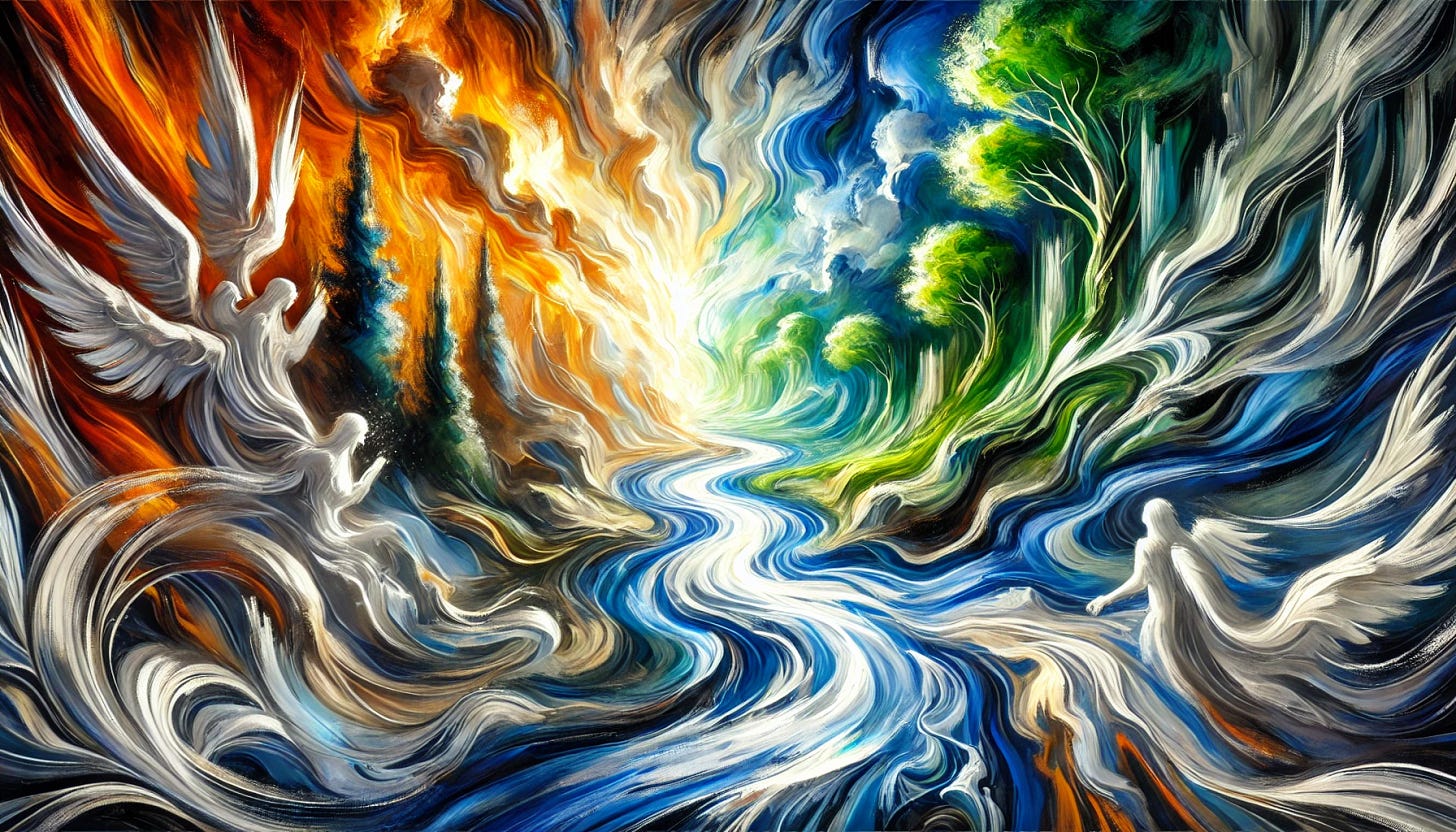Click here to read the passage.
Click here to read the notes and questions for Revelation 21:1-8.
Main Idea: In eternity, God’s people will enjoy perfect fellowship and communion with God in his perfect city.
The New Jerusalem Will Be like a Perfect City (21:9–21).
The New Jerusalem Will Be like a Perfect Temple (21:22–27).
The New Jerusalem Will Be like a Perfect Garden (22:1–5).
In this passage, we are given a stunning vision of the New Jerusalem, the eternal city of God, as revealed to the Apostle John.
This passage paints a picture of the final fulfillment of God’s redemptive plan, where heaven and earth are united, and God’s people dwell with him forever. It highlights the beauty, purity and glory of the city, described in vivid detail, with precious stones and radiant light. At the center of it all is the presence of God and the Lamb, providing light and life to the city and its inhabitants.
The passage concludes by pointing us to the tree of life, a symbol of eternal healing and restoration, emphasizing that in this new creation, there is no more curse—only perfect peace and fellowship with God.
Notes
Revelation 21:9-14
This is the fourth time John is carried away in the Spirit (see 1:10, 4:2 and 17:3). This time he is taken “to a great and high mountain.” This stands in vivid contrast to his vision of Babylon in 17:3 where he was taken into the wilderness to see the prostitute. Here he will see the glory of the Lamb’s bride, “the holy city, Jerusalem, coming down out of heaven from God, arrayed with God’s glory”
Pastor Chuck Swindoll concerning the 12 tribes and 12 apostles: “The city will be the dwelling place of the united people of God — Old and New Testament believers — whose salvation rests on the completed work of Jesus Christ.”
Revelation 22:3
The curse is vanquished forever and replaced by “the throne of God and of the Lamb” in this beautiful garden city. Genesis 3 is reversed, undone forever. All that we lost in the fall we get back and more.
Revelation 22:4
Now, in the new holy of holies, the entire priestly community will experience the greatest blessing of all: they will see the face of God. Moses was not allowed to see God’s face, but saw only his back. God’s people have always longed to see the Lord. The old priestly prayer for the Lord to “make his face shine on you” and “turn his face toward you” finds its ultimate fulfillment here.
Revelation 22:5
From Pastor John MacArthur:
“The eternal capital city of heaven, the New Jerusalem, will be a place of indescribable, unimaginable beauty. From the center of it the brilliant glory of God will shine forth through the gold and precious stones to illuminate the new heaven and the new earth. But the most glorious reality of all will be that sinful rebels will be made righteous, enjoy intimate fellowship with God and the Lamb, serve them, and reign with them forever in sheer joy and incessant praise.”
Questions
How does the imagery of the bride, the wife of the Lamb, in verse 21:9 help us understand the nature of the New Jerusalem? What do you think the marriage metaphor implies about our relationship with God in eternity?
In what ways does the new Jerusalem look like the garden of Eden? How is it different?
What does the garden imagery in this passage tell us about the mission of God in the whole Bible?
Verse 21:22 states there is no temple in the city because the Lord God Almighty and the Lamb are its temple. What do you think this signifies about the nature of worship in the New Jerusalem? How will worship look different from how we experience it now?
In Revelation 22:1-2, the river of life and the tree of life are described. How do these images reflect God’s original creation in Genesis and His ultimate plan for restoration?
Why is seeing the face of God the greatest blessing of all in the new creation?
The text concludes with the promise that God's servants will reign forever. What does it mean to 'reign' in God's kingdom, and how might we prepare for this role in our daily lives?"






Question 6 was thought provoking as I had never contemplated that seeing the face of God would be the greatest blessing of all in the new creation.
1. God cannot look upon sin (Habakkuk 1:13)
2. Adam and Eve had full access to God in the garden and saw him and spoke with him, when they sinned, they were removed from God's presence. He could not look upon their sin, they could not see his face.
3. Moses wanted to see God's face but could only be allowed to see the passing of his goodness or glory. God told him nobody could see his face and live. Thus, being able to see God's face means we have been granted access to that which was previously unattainable.
4. Think about us as humans, the desire to gaze into the face of our lover, to see the smile of joy on the face of our children, to look at someone with interest in what they are saying. Our faces demonstrate our availability.